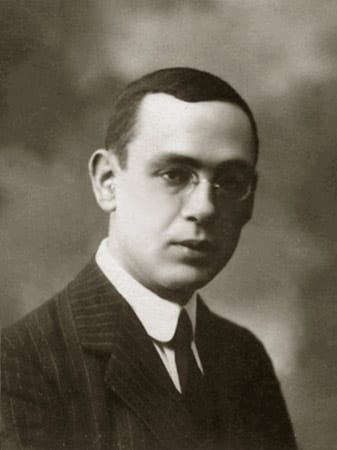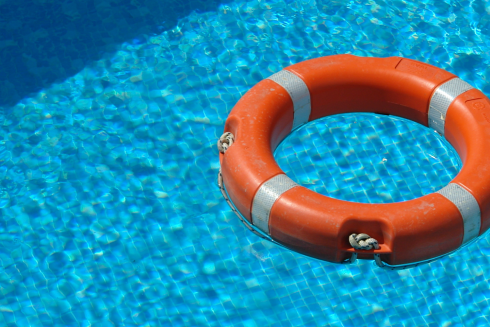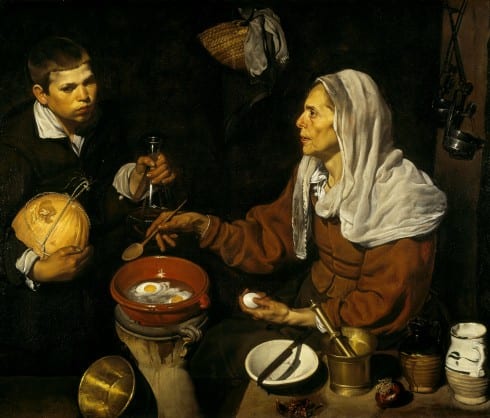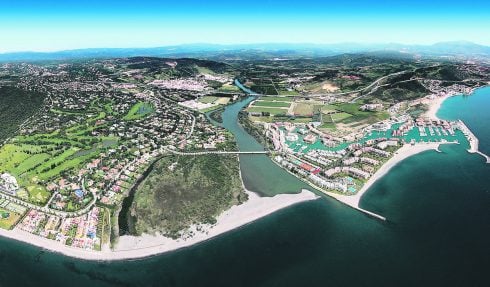THE ‘father of Andalucia’ and a son of Casares, Blas Infante is as much a part of the region as the vultures and eagles soaring above it.

The writer and politician was born and schooled in the village of Casares, where he is now immortalised through a small museum in the very house in which he entered the world in 1885.
He is most famous for sowing the seed of Andalucian nationalism, designing the flag, composing the anthem and fighting non-stop for the region’s ‘self governing statute’.
He wrote a book titled ‘Andalucian ideal’ and delivered Andalucia’s first ever Assembly in nearby Ronda in 1918.
He was also elected council representative for the district of Gaucin-Casares-Estepona in 1918, a year before he married Angustias Garcia Pradas, with whom he had three daughters and a son.
In 1936, after the February elections, the Andalucian campaign intensified and Blas
Infante was proclaimed President of the new assembly.
However, his political ideals did not sit well with the fascist Franco regime and in August that year, as civil war broke out, he was arrested at his house in Sevilla and locked away in an old cinema.

Tragically, nine days later, without trial or sentence, he and two others were driven away and then shot dead at the side of the main road to Carmona.
As his body crumpled to the ground, he is believed to have roared: “Long live free Andalucia!”
Nowadays, his memory is honoured in Casares with the placing of flowers at the base of his statue every year in Plaza de Espana.









After Spain, the former empire had lost in 1898 its last overseas colonies during the Spanish-American War, the country found itself in a political and social crisis. The intellectuals in the north, among them José Ortega y Gasset and Manuel de Falla, were more oriented to Europe and felt the Andalusians to be lazy and backward minded. In contrary in the south there was a tendency that Spain has to solve its problems from within, while respecting its intermediary position between Africa and Europe. Europe has been condemned by the south as being rational, emotionally cold, mechanistic and utlitaristic
In this time, Blas Infante pursued two goals:
– giving land to the poor farm workers from those rich landlords who lived in the cities and did not allow to the poor to work on their idle land.
– the autonomy of Andalucia.
Regarding the farm land, Blas Infante followed anarcho-socialism ideas which were imported by Spain from Russian Anarchist Bakunin end of the 19th century. Blas Infante helped to grow anarcho-socialist unions of land-workers in Andalucia.
Regarding the autonomy, in 1909 Blas Infante was excited by a man from Barcelona who was fighting for Catalunyan independance. Therefor he worked out a statute of autonomy for Andalucia, but just before implementation he was killed by fascist extremists. Different from Catalunya, there was no real need for a Andalusian independence , as there exists no Andalusian nation nor a Andalusian language and culture. As of today Andalucia as a autonomous region profits best from the money which they receive from the Spanish central authority. As can be seen from the last Andalusian elections being held in spring 2015, the Andalusian socialist party PSOE was much stronger in the Andalusian countryside, than in the cities. This is also true for the radical left IULV-CA, which won 5 seats in the Andalusian parliament. The popularity of left parties in the countryside is a relic of their anarcho-socialist roots from the times of Blas Infante.
In the Andalusian Statute of Autonomy of 1981 Blas Infante is especially appreciated as the ‘father’ of this constitution.
This man made the same mistake as Rosa Luxembourg, they were both naive and paid the price for it.
No language or culture, that’s why the food is almost totally different from just across the border in Extramadura or Asturias or Galicia. Andaluz, the dialect is far removed from castillano.
Like all Germans are the same all over, no they are not. You have a big thing against regionalism, dialect and customs don’t you Wolfgang, now why is that?
Stuart,
no I like regionalism. As you may know, Germany is a federal state for a very long time. But this said does not implicate to promote total independence, as long as we have a Europe of Nations. My view would change if we had a central EU state built of ‘regions’. In that case, Andalucia like Bavaria or Scotland may be a independant member of the union with one deputy each sitting in the European Parliament.
But as long as Malta has the same weight in EU decisions as UK or Germany, I do not support regionalism.
Regarding Andalucia, you may well know that the majority of Moors had been deported from Spain in the beginning of the 17th Century, while the Spanish catholics stayed there, who had come from other parts of Spain to Andalucia during the 400 years of ‘Reconquista’. Therefor there may be some differences between people from Madrid and people from Andalucia (like the difference between people from Paris and the rest of France), but these differences are not as deep as the differences between Catalunyans and Basques to Castellanos.
I appreciate your comparision of Rosa Luxembourg with Blas Infante.